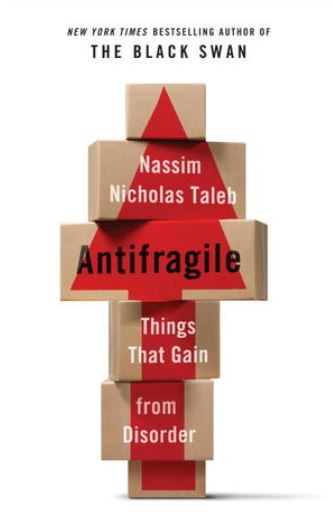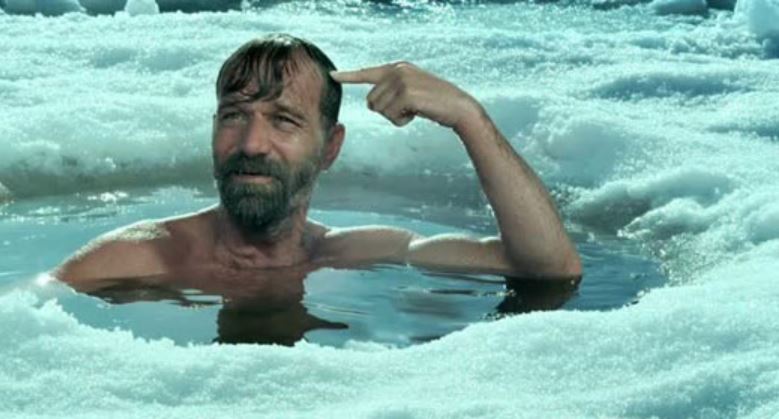
We live in an extremely comfortable world. Any movie ever made is available through streaming offerings at a click of a button. Luxurious beds and high-thread-count sheets promise restful, uninterrupted sleep. Home delivery of food, electronics, and clothes within minutes of purchase to our air-conditioned homes is now commonplace. By almost every metric tracked over time, this is a particularly good era to be alive. From the decrease in global violence to even our chance of getting hit by lightning, our world is better than ever. There is one side effect from all these advancements of the modern world and it is that it has made us weak.
This world of coziness and safety has ironically made us more susceptible to disease, depression, heart attacks, and strokes. Our personal comfort zones have shrunk so small that even trivial issues like lack of WIFI on a transcontinental flight can induce high stress and anger. The lack of struggle and discomfort has made us soft and hinders our personal development and improvement. This ample comfort is triggering an acknowledgment that to be better in any area requires stepping out of our convenient environments and into a challenge.

Like Luke Skywalker in Star Wars or Dorothy in the Wizard of Oz we seek the challenge of the hero’s journey. The Hero’s Journey is the story of personal transformation where people are taken from what is familiar then challenged to the point of despair. They eventually come through the challenge successfully and transformed from their trials. This trend of seeking out discomfort will be a crucial driver in the emergence of The Hero’s Journey economy.
In the book Anti Fragile, Nassim Nicholas Taleb points out that there are fragile items that break under stress like a delicate flower or glass vase. However, there are other things in nature that grow stronger by pushing back against the pressure. Like a tree that grows stronger as the wind pushes against it, people also rise to be tougher when they are taxed in specific ways. Biceps build and expand after curling weights. Legs become strong and lean not weaker after days of continuous walking. There is no word for it in English hence Taleb coined the phrase of antifragile.

It turns out that there is medical evidence behind this phenomenon and that we not only respond to stress by growing stronger, our bodies also root out weakness. During moments of stress, our body detoxes itself in a process called autophagy. In 2016 cellular scientist Yoshinori Ohsumi was awarded the Nobel Prize for medicine for his research in how the body detoxifies itself by killing weak cells and replacing them with healthy cells. Autophagy kicks in under stress like when we fast from eating or exercise. Other studies show that saunas and ketogenic diets ( high good fat low carbohydrate) also enhance autophagy.
It seems counterintuitive that people would seek out discomfort on purpose but many of these challenges, even small ones, can ready people for other larger transformational experiences. Stepping out of a comfort zone in one area of life makes it easier to step out in other areas. The key to transformational change is taking that step into the unfamiliar where the true personal modifications and improvements occur. These elements of discomfort that strengthen our bodies and minds are booming revenue areas in the coming Hero’s Journey Economy.
Dr. Rhonda Patrick – Has found that heat stress activates heat shock proteins (HSP). People with more HSPs are more likely to live past 100. These and other findings have sparked sales in home unit saunas.

Wim Hof – A pioneer in cold therapy and believes cold shock proteins are beneficial to life. His seminars on teaching breathing and cold-water immersion attract thousands.
Bikram Yoga – This wildly popular form of yoga combines a 90-minute stretching routine in a studio set at 109 degrees Fahrenheit.
Tough Mudder, Spartan, and Gauntlet Races – Add obstacles to traditional running races. The races focus on taking on a unique personal challenge and the tremendous feeling of accomplishment when completed.
Silent Meditation Retreats – A drastic disconnect from our over-stimulated digital worlds. These retreats can be as short as a couple of days or last weeks and are growing in popularity.
Transformational Travel Council – Supports the growing interest in challenging vacations and focuses on three areas that drive life-changing experiences
- Traveling with intention, openness, and mindfulness
- Engaging in challenging physical and cultural experiences
- Taking time for personal reflection & meaning
TB12 Method – A strict exercise and diet program from trainer Alex Guerrero that Tom Brady follows. A TB12 training session can cost $200 per hour.
XTP Life – An exercise and lifestyle program, created by big wave surfer Laird Hamilton, focuses on proper breathing and underwater weightlifting routines.
Isolation tanks – This isolation or floating tanks have highly concentrated saltwater so you can float essentially free of any outside stimulus. Although it sounds comfortable, being alone with your thoughts can be challenging for some people.
Cross Fit – A high-intensity gym that pushes members to new physical limits, some locations have waiting lists to join.
Ayahuasca trips to the Amazon – There is probably no greater step outside of your comfort zone than traveling to South America and drinking hallucinogenic tea. However, these trips have grown in popularity for solving PTSD and other mental issues.
Today many marketers feel that there is more money in selling comfort rather than discomfort, but as consumers search for meaning and change in their lives, they will become educated on how real personal change takes place. The promise of happiness and personal development through extreme comfort will come into question and ring hollow.
Authenticity around the benefits of pain in the process can be a strong selling point. The success of the P90X exercise program was attributed to the fact that many people who bought it knew it was going to be difficult. The infomercials highlighted that the routines and the commitment to the program were hard and not for everyone.
In the Hero’s Journey Economy, companies offering goods and services that promise transformational change must not shy away from the topics of discomfort and setbacks but rather be transparent about how real personal change occurs.

